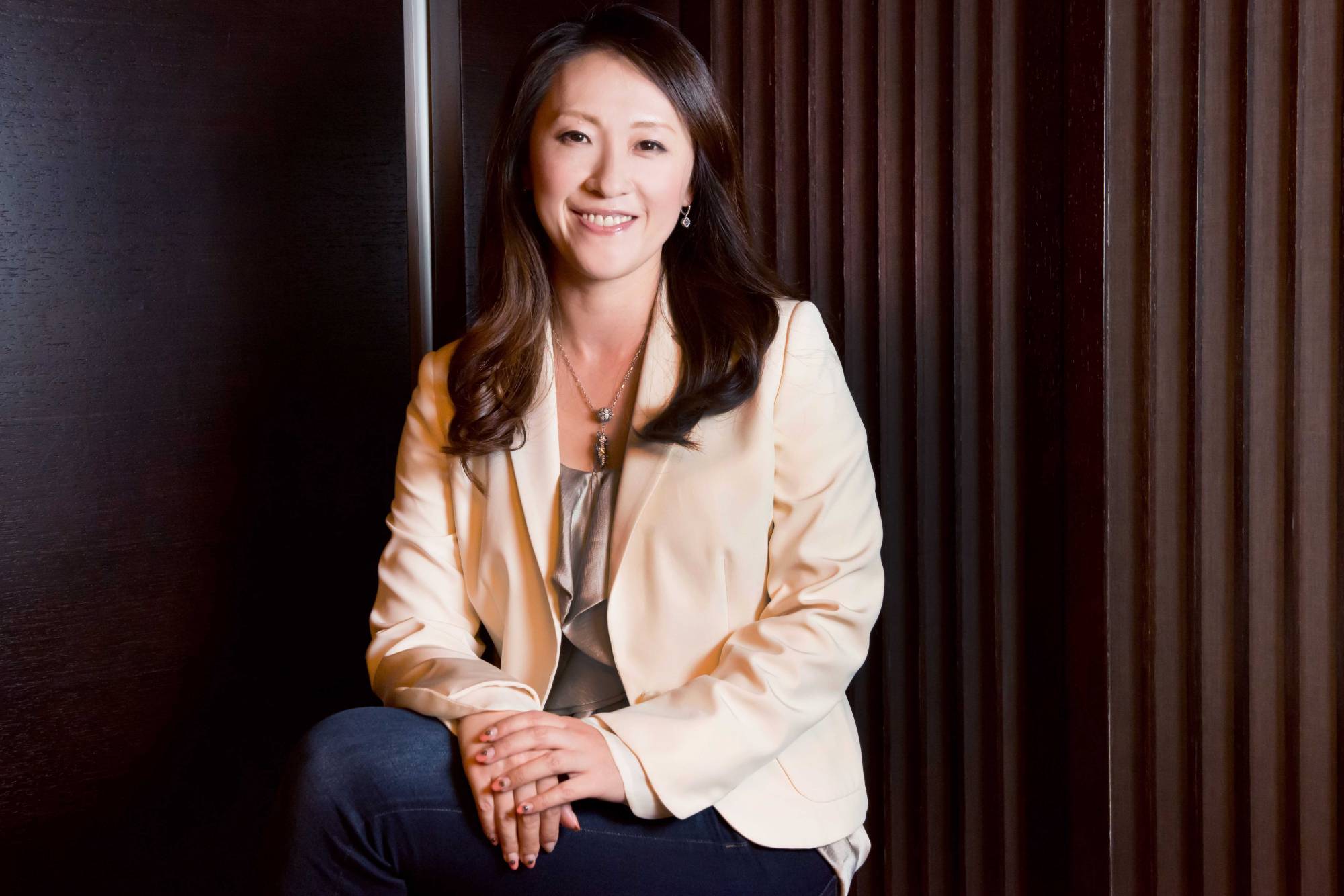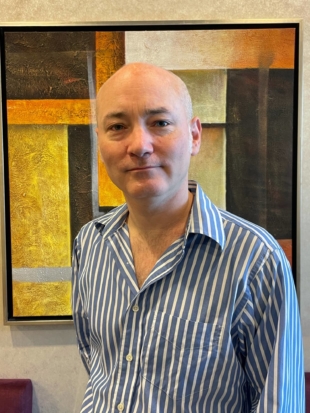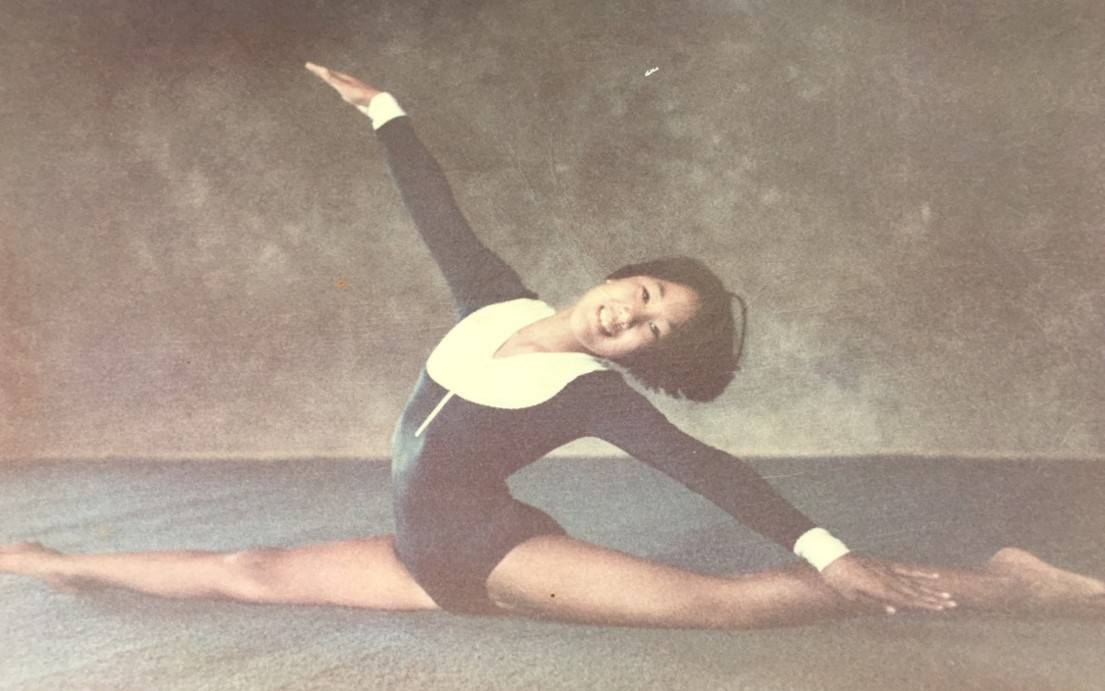As an Olympian and member of Japan’s national women’s soccer team, Yumi Tomei is no stranger to commitment, hard work and discipline. In her 12-year career as a football player, the defender twice lifted the Nadeshiko League trophy with professional women’s team Prima Ham FC Kunoichi (now Iga FC Kunoichi) and represented her country 43 times, scoring six goals.
Yet despite rising to the top of her game, Tomei retired from the sport unsure of how to transfer her hard-earned skills and valuable personal traits into marketable assets. She tried her hand at public relations, but found it wasn’t for her and returned to graduate school.
While completing a Ph.D. in sports science and health, she encountered the EY Women Athletes Business Network (WABN), a mentoring program that supports professional sportswomen as they look to move into the corporate world. Before long, she found her true calling and started to use her experiences on the field to build better teams in Japanese organizations.
Setting up Tokyo-based consultancy Pass & Go at the age of 40 was far from easy, she says, but, eight years on, she has a full client book as well as regular bookings as a motivational speaker.
A few decades ago, Tomei’s experience might have been unheard of. It was unusual to change jobs, much less change career, and even more so in the middle of one’s life.
“As the idea of a job for life became standard in Japan, there was a stigma attached to changing jobs,” says Adam McCann, senior consultant at Cornerstone Recruitment Japan. However, job changes have become normalized, particularly among young people, McCann adds. This is helping usher in the idea of career change, too.
The pandemic may be playing a role in quickening the shift in sentiment. Its widespread impact on people’s lives has caused many to rethink not only work goals and priorities, but also how work affects their quality of life.
The U.S. National Library of Medicine describes the global phenomenon as a “career shock” capable of changing an individual’s career path significantly. In the United Kingdom, a fifth of some 5,000 people surveyed said the pandemic had made them realize their current role isn’t for them. Their response? To use their free time during lockdowns (periodically from March 2020) to search and plan for a career in a new industry, according to British recruiter Totaljobs.
In Japan, a survey carried out by recruitment consultancy enworld in the fall of 2020, found that a quarter of the 1,000 respondents said they wanted a career change, up from 17% before the pandemic.

Tomei is among those who advocate that their dream is possible, saying the key to success lies in having good soft skills, a resilient mindset and unwavering determination.
“There are commonalities between the sports world and the business world, and I act as the bridge,” says Tomei, adding that she has brought knowledge and experience to her second career as well as the passion and grit she developed on the field.
“To succeed in play, we have to fail 1,000 times,” she says. “We are not afraid of making mistakes and we never give up.”
It’s the attitude the Gifu native has had since her teenage years. At 13, she dreamed of playing soccer for her country and recalls telling a Japan team member that she wanted to follow in her footsteps. At that time she was playing for an afterschool club but, at 16, she was invited to join the then-amateur Prima Ham team in neighboring Mie Prefecture. After begging her parents for permission, she took up the challenge, undeterred by the six-hour round trip for practice that forced her to study for her high school classes on trains and buses.
At 21, she was selected by the Japan team and played alongside her hero from her teenage days, which she describes as “a special moment.” On graduation from university, at 22, she was recruited into Prima Meat Packers’ public relations department with the main duty of playing soccer in the professional women’s league.
Due to a widespread belief that female athletes should retire by 30, before their performance wanes, Tomei hung up her boots at 29 without giving any thought to her next career.
“I thought my future would be bright and I would be able to get any job because I had been to the Olympics for Japan,” she says. “But I was wrong. Thankfully my father had persuaded me to go to graduate school while I was on the national team. He had told me that I couldn’t think about soccer 24 hours a day. That thinking has helped my current career.
“I wasn’t a great employee at Dentsu. I quit after five years — I basically failed in my career there but I still tried to achieve my dream of working in the business world,” she adds. “I’m so glad that WABN recognized my ability and potential. In Japan, we need to change the idea that people have to stay in a company for a long time. People should always have a second chance to do something else.”



McCann agrees, adding that people want to change their career for all kinds of reasons, including the desire for growth. He entered the recruitment industry at 38, seeking new challenges after a career in corporate training.
“If you are changing to pursue new opportunities, employers can look on it favorably,” he says. “They want candidates who are running toward something, not running away.”
Although he admits it is not easy for people to change their industry in Japan, particularly for older people, “communication skills, proven self-development, language skills and the ability to manage yourself and others” can be gamechangers.
Whereas multinationals might seek up-and-coming talent, startups might value an older candidate as a safe pair of hands because of their decades of experience.
His company has found roles for individuals making midcareer moves from niche industries, including life sciences and finance, into imports and management, which McCann attributes to considering candidates on more than simply their resume.
Entrepreneurship is also a popular choice for midcareer industry transitions.
Ian Gibbins, owner of British-themed shop and food producer Swan & Lion in Tokyo, began his working life as a lawyer in England but a “low work satisfaction rate” saw him return to Australia where he had once enjoyed a working holiday.
On arrival he got a job as a cycle courier, which suited his love of freedom and strong work ethic. He particularly enjoyed delivering to lawyers’ offices as a reminder that he had made the right choice, he says.
But Gibbins had long had an interest in film and television, so he began looking for ways to enter the industry. At 27, his legal training landed him the role of operations manager at Beyond Films, where he sold international movies to territories all over the world. Supporting major film markets and festivals, such as Cannes, afforded him many opportunities to travel until he became more involved in production and was appointed general manager at Arclight Films.



When professional and personal obligations kept bringing him to Japan, the Anglo-Australian settled in Tokyo but missed the “amazing food culture” of Australia. He began making pickles, chutneys and jams — just as he had done before, using produce from his garden — and giving them to Japanese friends.
“They loved the sweet and sour combo, so I decided to make a brand and see what happened,” he says, adding that the first step was selling jars at local markets. Next came Christmas fare — puddings and mince pies — followed by baked goods and meat pies.
With interest rising among both Japanese and international residents, Gibbins realized he could make a viable business. At the same time, he was becoming fatigued by the volume of work emails he was receiving, often as many as 180 daily. Some days seemed “simply a challenge of how many could be processed,” he says.
At 49, driven by his upcoming milestone birthday and inspired by the gap in the market, he left the film industry and opened a shop in Chiyoda Ward.
“It happened so organically,” he says when describing the development of the business. “But the first few years of running the shop were challenging. I had no experience in the food industry and underestimated how hard it would be, but I was always confident I could do it. I was a handy home cook who loved making new recipes and was good at scaling up.”
Like Tomei, Gibbins drew on skills gleaned from previous careers, including multitasking, prioritization, planning, organization and communication. His previous roles had also made him creative and risk-tolerant; he has even considered opening a yakitori bar as a semiretirement business if he ever leaves Japan.
Fellow business owner Dermot Killoran also continues to draw on myriad skills picked up in the diverse roles he has undertaken. He began his career at Bank of Ireland, which facilitated his arrival to Japan in 1983 via a European Union program to encourage greater foreign direct investment into Ireland. Within three years, he was chosen to head up the bank’s representative office in Tokyo.



When the office closed in 1993 following a reorganization, Killoran was called back to Dublin, but he negotiated a two-year leave of absence in a bid to allow his then-young children to absorb more of their bilingual culture.
Within that period and aged 38, he set up IT consultancy PTS (People, Technology and Solutions) from the spare room of his home, and committed to staying in Japan.
“I was motivated by the desire to know computers,” he says, adding that he saw the industry’s nascent potential. In 1993, the internet communicated 1% of the information flowing through two-way telecommunications networks and Microsoft released the first version of the newly developed Windows NT operating system.
With demand booming from companies keen to educate employees on how to navigate the new industry, he expanded the business to employ 85 staff. At the company’s peak, he exited the business age 48 following an acquisition by Datacraft Singapore.
“It was desk-bound work and I felt I had a creative side. In my mid-20s I was a member of a photographic club in Dublin, so I co-founded Calderwood Productions,” he says.
As executive producer, the Irishman led the production of television commercials for brands such as Yamaha and Jeep alongside his movie director business partner, who quit Japan following the Great East Japan Earthquake of 2011.
After the partnership dissolved, the then-56-year-old Killoran sought to do something by himself and set up Calderwood Images to focus on commercial portrait photography and postproduction. From his studio in the Yotsuya neighborhood of Tokyo, he captures individuals from a variety of industries to supply photos for their company websites, LinkedIn profiles or personal use.
He has employed many transferable skills in each transition, including financial and business understanding, a collaborative and individualistic approach and, most important, working well with people.
“My work today involves managing people and helping them relax so I can get them to express their true selves with confidence,” he says.
As a mentor for the Japan Market Expansion Competition, he also motivates participants “so the sum of the team is greater than its individual parts.”



For Killoran, career change is also about taking risks and avoiding regrets.
“Jumping in without knowing the outcome is always a bit of a gamble, but if you over-examine it, you won’t do it,” he says. “You have to go forward with belief in your own idea and with confidence you can make it work.”
That belief and confidence, agrees Killoran and Gibbins, comes from not only accumulated experience and expertise but also consultation with others, whether an industry specialist or a trusted adviser.
Support is also the bedrock of WABN, according to Tomei, who says her mentor gave her “encouragement and tips as well as practical tools.”



In recent years, more athletes have been making successful career transitions, a trend that Janelle Sasaki, EY Global WABN leader, says can help Japan, too. As someone who spent more than 10 years as a competitive gymnast in the United States, she believes retired sportswomen have great potential.
“If you want more women in leadership, I would focus on women athletes,” she says. “They are probably the most untapped pipeline of future leaders.”
In a time of both misinformation and too much information, quality journalism is more crucial than ever.
By subscribing, you can help us get the story right.
SUBSCRIBE NOW


